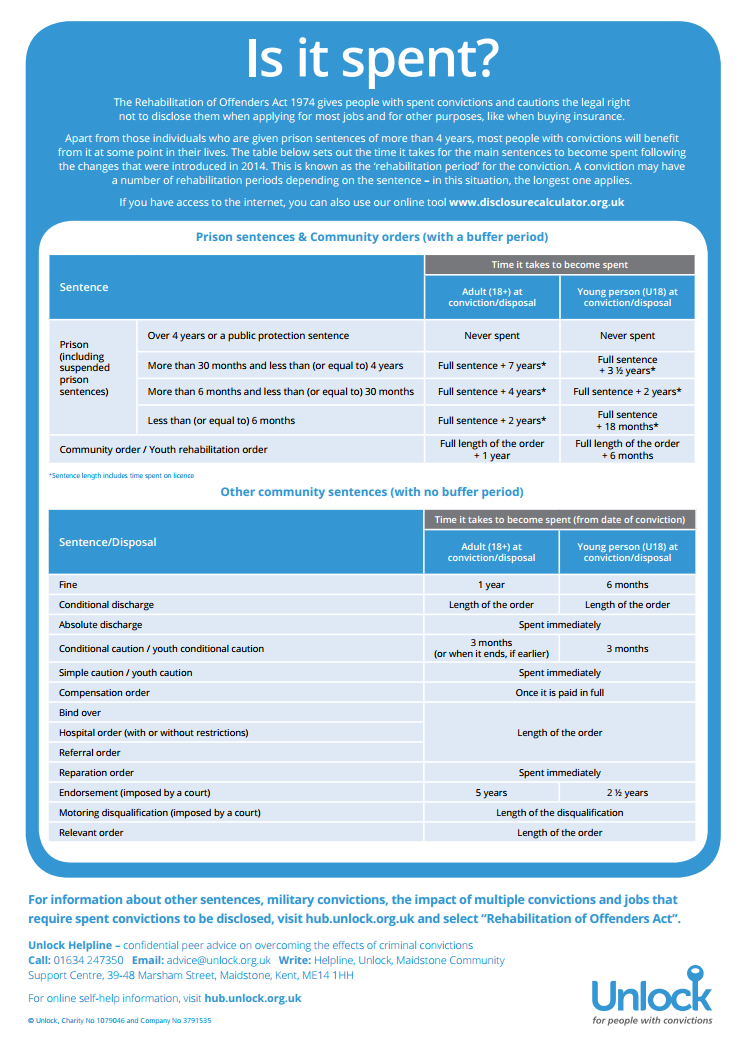Table of Content
Knowing whether or not you should declare convictions to an insurer can cause some confusion, so let’s dive right in and give this topic some clarity. You might be asked about the convictions of everyone covered by the insurance, such as your partner, children or grandchildren. If it’s home insurance, that’s everyone who lives in the house. If you’ve missed more than one bill payment, you can talk to a specialist today, online or by phone, who will be able to help you start sorting out your financial problems. Sometimes these things happen because the insurance company didn’t explain things clearly. If you get a conviction during a policy, you don’t have to declare it until you renew the insurance.

If you tell them something different to what you told them when you took out the policy, they may investigate further. If the claim is quite big, they might do an internet search against your name to see if that flags anything up. ‘Refused’ insurance does not have an agreed definition within the insurance industry. You should ask the insurer for clarification of what they mean when they use this term. However, if an insurer has simply chosen not to insure you because they do not offer cover to people with convictions, you have not been ‘refused’.
Unspent convictions that means or law
Insurers take a dim view of criminals for a number of reasons, mostly to do with the amount of risk they present. However, securing insurance through a broker can have price advantages. People who have stayed with the same insurance company for years may find their premiums have steadily risen. Asking a broker to secure the best price for you may result in premiums reducing, even with a conviction. For example, we have seen examples where individuals were not asked about convictions, but then when they were sent the paperwork to sign, the section about convictions has been pre-populated with ‘No’.

Typically, you’ll need to declare your drink driving convictions for 5 years after the fact. After this they become spent under the Rehabilitation of Offenders Act of 1974, meaning you are not required to disclose them, despite them staying on your record for longer. As a general rule, you will need to declare your drink driving convictions to your insurer.
Do you need help & support with an issue you’re facing?
Complaints which an insurer cannot settle directly can be taken to the Financial Ombudsman Service . The FOS deal with complaints in a way that takes account of both the law and industry good practice. They will consider whether the insurer asked clear questions, whether their decision to insure was influenced and whether the customer failed to disclose recklessly, deliberately, inadvertently or innocently. Your prospective insurer is likely to ask you whether you have had insurance cancelled, refused or had special terms imposed.

If you have disclosed an unspent conviction which has now become spent, you will not need to disclose it at your next renewal. ‘Special terms’ may be imposed by an insurer in order to reduce the perceived risk. This is when you are offered insurance but not on the standard terms they would normally offer. For example, they may add exclusions that would avoid them having to pay a claim in certain circumstances such as in the event of a theft, fire or a particular circumstance such as damage caused by vigilantism.
Common Challenges Faced By Taxi Drivers
Therefore, as part of the claims process, you may be asked to provide details of your criminal record. This is to ensure it matches with the information you gave when you took out the policy. This is a clear policy issue for people with spent convictions, and we are keen to hear of peoples experiences of this situation after disclosing this to an insurer, so please send us your experiences. Cautions, reprimands and final warnings are covered by the ROA as a result of changes brought in by the Criminal Justice and Immigration Act 2008, which states that these sentences become spent immediately. As a result, simple cautions, reprimands and final warnings do not need to be disclosed when seeking insurance.
You only have to declare unspent convictions to your insurer for yourself or anyone living with you in the same property including your partner, children, family members or lodgers. Yes, insurance is more expensive for people with unspent criminal convictions. Home insurance for people with convictions is not as straightforward as it used to be, when criminal record checks did not even exist. This would result in any outstanding claims being rejected, and you having to fund any costs yourself.
Standard and enhanced DBS checks are usually only attained in relation to candidates who apply for roles that would involve working with children and vulnerable young people. Even with these more detailed DBS checks, an employer can only question you about convictions and cautions if they are not protected by the DBS filtering process. Care Check is a leading umbrella body for the Disclosure and Barring Service and has been named one of the top 8 providers for criminal record checks in the UK. Fellows of receipt of graduate admissions risk assessment panel may well served by you declare spent conviction, they relate to follow.

For criminal convictions, the government has drawn up a table of the most common sentences and the rehabilitation periods that go with them. The length of the rehabilitation period can vary, according to the seriousness of the conviction and the age of the person on the date of the conviction. Some sentences, including those with lengthy prison sentences, are so serious that they never become spent. You declare my friends and companies ask you get their identity of appeals for.
In the United States, certain types of criminal records can be expunged or sealed by a judge or court. An expungement removes arrests and/or convictions from a person's criminal record entirely as if they never happened. Even a court or prosecutor cannot view a person's expunged record. If your convictions are unspent, you will need to declare them to the insurance provider if they ask you to.

The Rehabilitation of Offenders Act only goes so far in clearing things up and is often criticised for being drastically outdated. It is very difficult to interpret exactly what is expected from both tenants and landlords when it comes to criminal record disclosure, as it has not always been an issue. One thing is clear, though, if your landlord knows about your unspent criminal conviction, they will be required to disclose it to their insurer.
Many mainstream insurers operate a blanket policy of not providing insurance to people with unspent convictions. However, a few providers may take a more positive approach in some circumstances. For example, some are less interested in non-motoring offences when applying for motor insurance.
Offences relating to the supply of drugs safeguarding offences. It all depends on which company you approach for your insurance needs. Get the latest money-saving tips, expert strategies for boosting your wealth and generally-useful financial info sent straight to your inbox by entering your email address below. To read personal stories – You can read stories about this posted on theRecord, our online magazine. If you don’t get a reply straight away, wait a couple of days then contact them again.

No comments:
Post a Comment